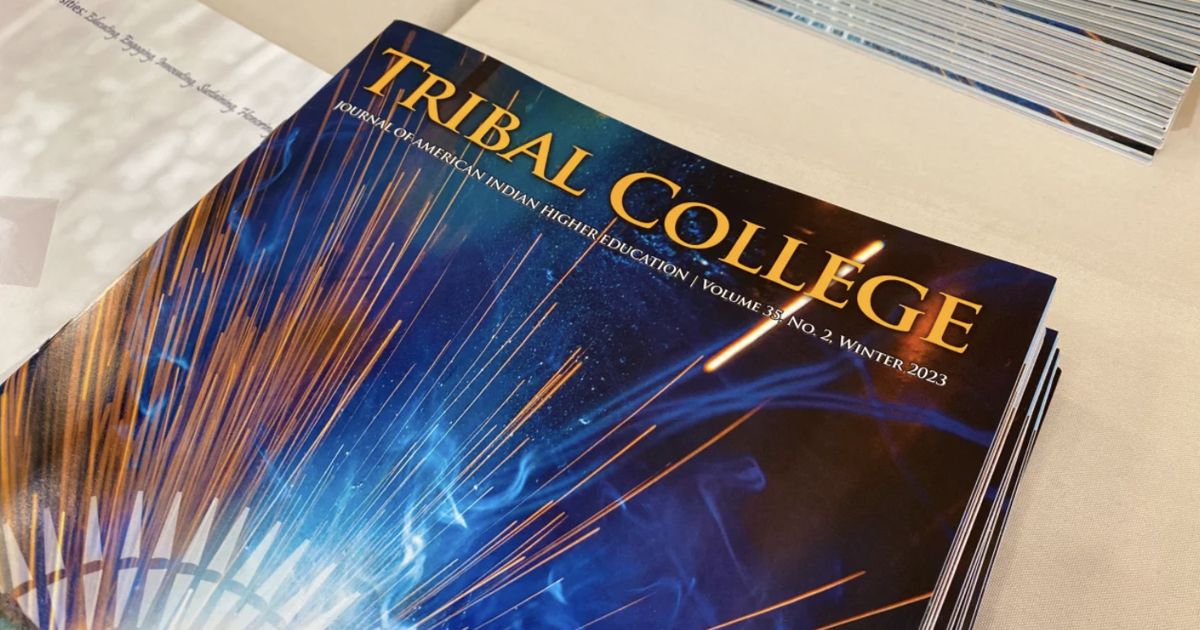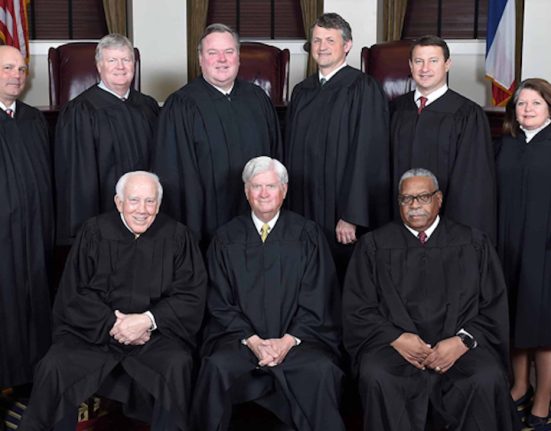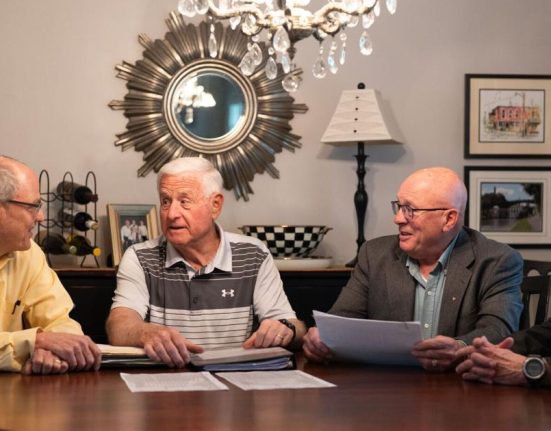For financially strapped college students, it’s all in the timing.
It’s National Tribal Colleges and Universities Week February 4-10 and the 30th anniversary of land-grant college designations. President Joe Biden has taken notice and action.
For the first time ever, a presidential proclamation aims to make it easier for millions of Indigenous students to pay for college.
Ahniwake Rose, Cherokee, vice president of Congressional Federal Relations of the American Indian Higher Education Consortium, told ICT that the proclamation is a historical moment in myriad ways for tribal students.
“It’s such a big deal because it’s the first time we’re having national recognition like this for our tribal colleges and universities. We’re the backbone of tribal education,” Rose said.
“And so to be able to have the president recognize our importance in our communities is really going to be a game-changer for us as we continue to build our momentum around the amendments that we need for things, like the Farm Bill or the Higher Education Act.”
As the National Tribal Colleges and Universities event takes place in Washington, D.C. this week, President Joe Biden promises to make higher education more affordable for students.
Goals abound.
One is to increase by $900 the maximum Pell Grant – which students do not have to pay back, making it easier for millions to pay for school, according to the White House announcement.
Another is to ensure that the Public Service Loan Forgiveness plan remains intact, ensuring that students who take public servant jobs after graduation benefit from some debt relief.
Yet another is to cut “in half” payments for undergraduate student loans via the Saving on a Valuable Education Plan, which also includes granting early forgiveness to borrowers with low-balance loans. The latter could save the typical student borrower about $1,000 per year.
“We are pursuing new actions to relieve the burden of student debt for as many borrowers as we can, as fast as we can,” said Biden.
Sandra Boham, Confederated Salish and Kootenai Tribes of the Flathead Indian Reservation, is Salish Kootenai College president and a life-long educator, said Biden’s directives – aimed at the Department of Education, Department of Interior and the Department of Labor – will definitely benefit her students.
She and many of her students are attending the Tribal Colleges and Universities celebration in D.C. right now.
“All 34 Tribal Colleges are here working to educate the legislative members about the critical role TCUs play for our students, tribes and communities,” Boham told ICT. “Our students are here to share their stories of their lives and the impact TCUs have had in their life.”
Student Angeline Brewer, Oglala of Pine Ridge, who attends Oglala Lakota Community College, said the increase alone in Pell Grant money will make a difference in her life.
“It will help me just because it’ll help with books and the fees that go to college,” said Brewer. “And I know I’m not the only one that agrees with this and a bigger return, as well, with money left over.”
Chuckling, Brewer added the extra $900 in her pocket would help pay for bills and food due to inflation. So every little bit helps.
Another full-time student, Elena Rodriguez of the Three Affiliated Tribes (Mandan, Hidatsa and Arikara Nation) and enrolled at Sitting Bull College, has luckily avoided taking out student loans.
Because Rodriguez, a mother, part-time employee and caregiver for another family member, attends a tribal college, her tuition is covered.
“My Pell and higher education grant has covered it as well as other scholarships,” said Rodriguez.
Serendipitously, spending time in the nation’s capital and absorbing TCU Week has opened her mind in unexpected ways.
“I haven’t had any thoughts of working in public service,” added Rodriguez. “However, being here in Washington, DC has definitely fueled that motivation to do something for a higher purpose that serves all of us in our communities.”
Although she expects to receive more financial aid after Biden’s actions, Rodriguez remains concerned that the increase is not significant enough while raising a family as a single parent.
“We have very many challenges on the reservation, uh, especially when it comes to support with like parents,” she said. “And not many of us have our parents in our lives, and most of us have to take care of everything on our own. Our car payments, our car insurance, everything is on our backs.
“We don’t really have anyone there to help us. And a lot of us depend on our financial aid to pay for school because we don’t have any other funds to dip into.”
As “placed-based institutions,” tribal colleges provide a wealth of education services sorely needed in reservation communities, said Rose, “meaning that they’re grounded in who we are as Native people.”
Tribal colleges prioritize that language and culture remain central to curriculum, resources and student opportunities.
Rose said all 34 tribal college presidents from around the country are busy advocating for their institutions at this week’s national event.
Overall, the tribal leadership collaborative focuses on adequate funding at all levels, developing funding formulas based on student need, addressing historical wrongs and ensuring that their tribal colleges receive all necessary resources for student success.
Another big request focuses on construction of new buildings on campuses “to ensure we have operation and maintenance (and) that we can actually continue to use these buildings 40 years down the road,” added Rose.
Other significant requests involve support within the overarching Farm Bill and acknowledging the 30th anniversary of the land-grant institutions, also called “1994” institutions, the year they gained such status. Designated state colleges are referred to as “1882s.”
“We did not receive a lot of the same things that happened when we became a land-grant university,” Rose said. “For example, the states were gifted land; we were not gifted land. So we’re looking at how do we continue to build equity to ensure that we have the same resources that the other institutions do?”
Boham said alleviating student debt continues as a work-in-progress, but with promising outcomes emerging at Salish Kootenai College.
“SKC is the only TCU that participates in the loan program,” added Boham. “Our students are conscientious borrowers because we have a focused financial literacy program they need to complete before they can receive loans. The Department of Labor will be a great partner as we continue to develop workforce programs to meet the changing work skills of the future.”
Rose said timing is perfect in another way for Congress – in collaboration with Biden – to celebrate the successes and challenges of the tribal colleges.
“This is the 30th anniversary of our tribal colleges and universities becoming land grant universities,” said Rose. “So it’d be a wonderful time for Congress to acknowledge the great work that our schools have done and make some significant changes to support our schools.”
This story was originally published by ICT and is republished with permission. To view the original story, visit https://ictnews.org/news/joe-biden-celebrates-tribal-colleges-promises-student-loan-help.







